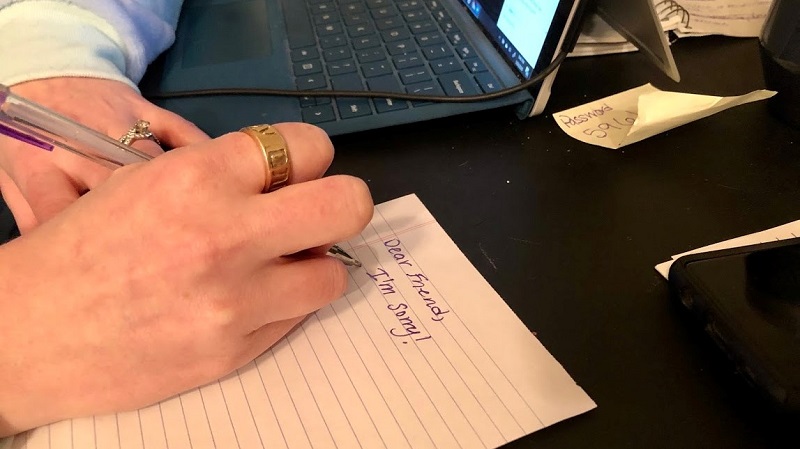I tend to be pretty hard on myself after a mistake or misstep. When I do something or say something that I later regret, especially when it might make someone else uncomfortable or hurt them, I hold on to that pain and regret almost like a security blanket. I tend to beat myself up for days and weeks afterward, thinking about how I could have done better, worked differently, or simply made a better choice. Worse is when I realize my wrongdoing, then apologize, but the person isn’t ready to forgive or even engage in that conversation yet. That leads to my own frustration that I just didn’t avoid the situation in the first place. I’m a people pleaser after all, and because of that, my ideal is creating community and connection with everyone I encounter.

While the first step – recognizing the wrongdoing – might be easy for me, it certainly isn’t the only step necessary on the path to forgiveness. This week we read from Parshat Vayikra, the first section of the third book of the Torah. This begins with the explanation of the sacrifices that we are to give daily, weekly, and yearly. We learn that there can be a sacrifice made in times of joy and in times of sorrow. There is a special sacrifice for being guilty of a sin and others for complete thanksgiving. As Sefer Vayikra continues, we learn about the laws of how to treat one another, how to engage in holy relationships, and how our calendar and meals should reflect our innermost values and desires.
The end of this week’s portion deals with the ways in which we might ask for forgiveness or make strides in righting the wrongs we have committed. Chapter 5, verse 26 ends on this positive, simple note: “He shall be forgiven.” This statement follows an explanation of the actions that might be used to make reparation for our misdeeds. Ultimately, if we partake in the prescribed action and ask for forgiveness, then we are forgiven.
A Hasidic master taught, “The gates of repentance open for anyone who does wrong and then realizes it and seeks to make amends.” In other words, the road to forgiveness must begin with the desire to get there. I can beat myself up all I want about my misdeeds, but unless I have a willingness and desire to change, those gates remain locked.
As we read Parshat Vayikra, especially at a time when our community simply is not physically able to come together in person to apologize, to forgive, and to move on, we are reminded that each of us holds the key to our own journey to forgiveness. And perhaps an added benefit of this period of isolation is merely the time to look inward and finally use that key. Shabbat shalom.
– Rabbi Eve Posen



